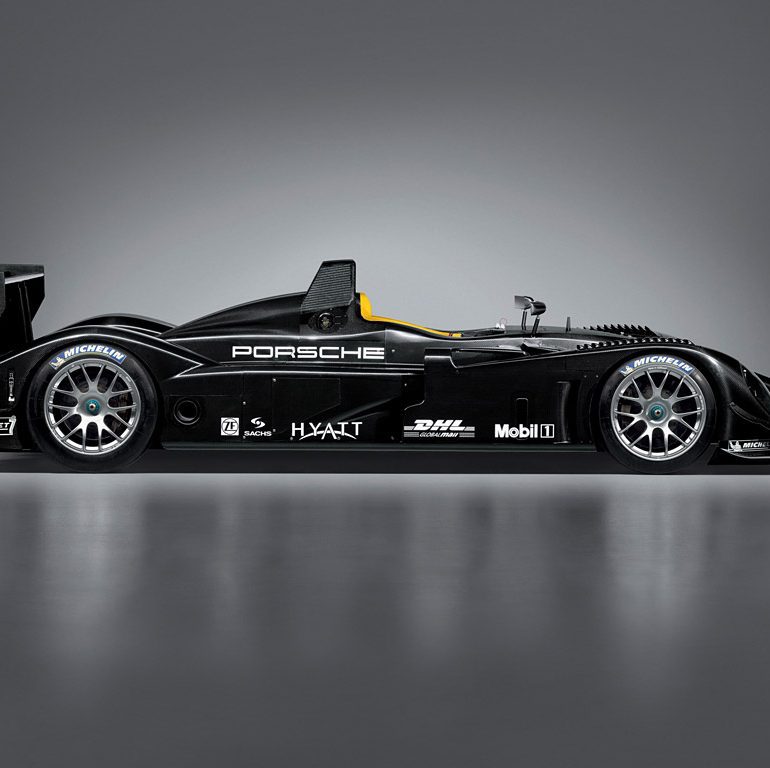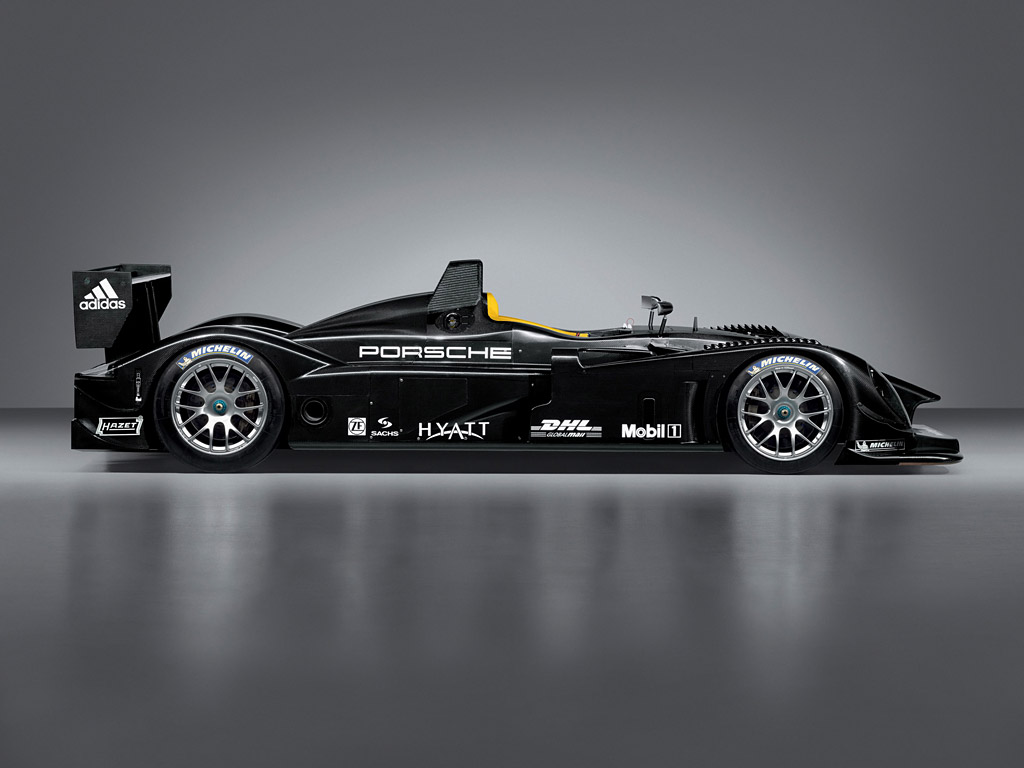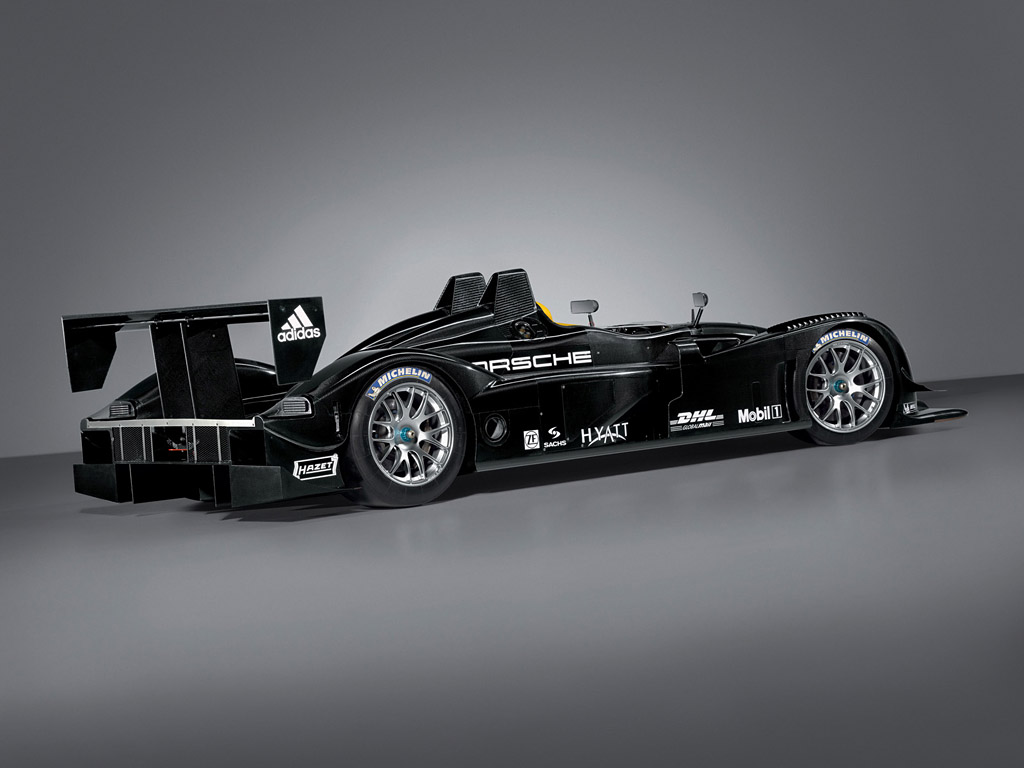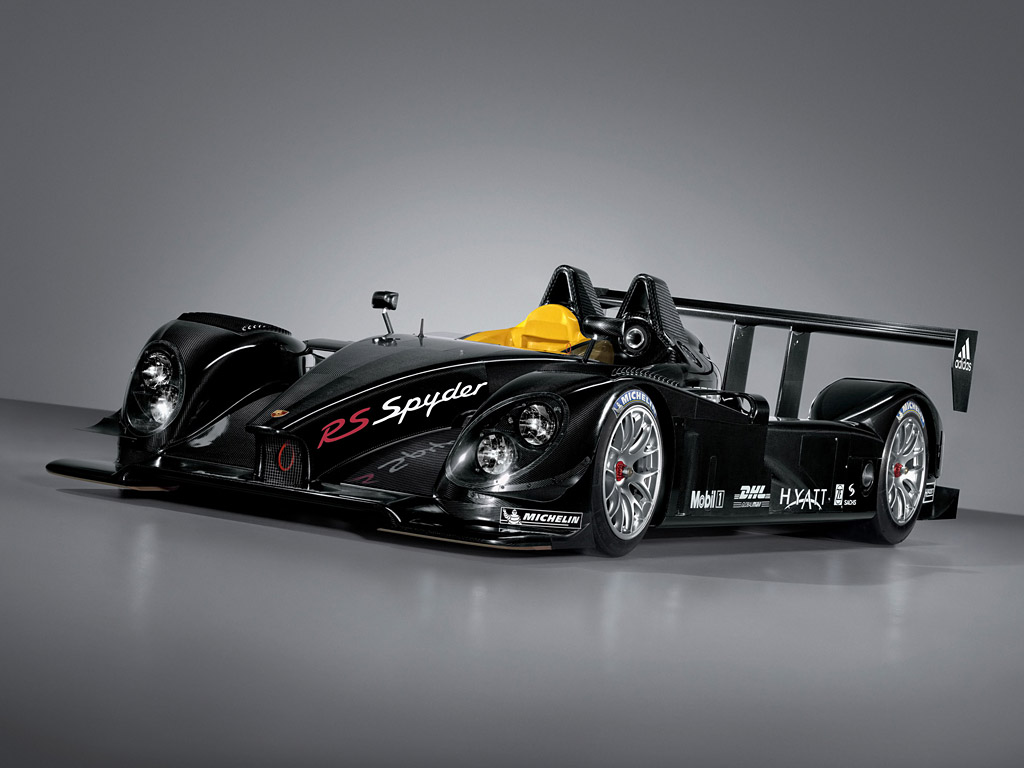2007 Porsche RS Spyder Evo
Following a development year with Penske Motorsports in ALMS, Porsche revealed the final version of their LMP2 contender for the 2007 season. Known as the ‘EVO’ model, it had a host of upgrades that made it suitable for customer-funded teams to successfully compete. Since 2007, this model has dominated the P2 class at events like Le Mans and Sebring.
Press Release
Dr. Ing. h.c. F. Porsche AG, Stuttgart, is proudly presenting the new RS Spyder at the Paris Motor Show, the Mondial de l’Automobile, from 30 September – 15 October, where the car is making its first public appearance. Developed at Porsche’s R&D Centre in Weissach near Stuttgart, this racing car is an evolution of the sports prototype currently going all-out for the winner’s title in the American Le Mans Series (ALMS) in the hands of the US Penske-Motorsports-Team. Next year the new RS Spyder is to be raced by various customer teams in a number of countries, thus making its international debut.
Porsche has developed and built the open RS Spyder in accordance with the rules and regulations of the French Automobile Club de’l Ouest (A.C.O.) racing organisation under the designation “Le Mans Prototypes 2”. This means that this racing car may be entered, inter alia, in the American Le Mans Series (ALMS), the European Le Mans Series (LMS), and the 24 Hours of Le Mans. Choosing the second-highest of four A.C.O. racing categories, Porsche is facing competition at the highest level of technology and at the same time limiting the cost of racing the car with a view to future entry of the RS Spyder by customers.
Following thorough computer simulations and tests in the wind tunnel, the RS Spyder will feature an updated and upgraded chassis next season. Optimisation of the wing and rear diffuser serves not only to enhance the aerodynamic efficiency of the car, but also to improve the range of set-up options for different kinds of race tracks. At the same time the carbon-fibre body has been modified for an even higher standard of ease and convenience in service and maintenance. And last but not least, the thermodynamic qualities of the RS Spyder have been optimised inter alia by re-designing the air ducts leading into and out of the radiators.
The 90o V8 racing engine developed by Porsche for long-distance events develops maximum output from 3.4 litres displacement and with the air volume restrictor required by the pertinent regulations of 503 bhp (370 kW) at 10300 rpm, an increase in output over the former model by 23 bhp. The weight of the car is also in line with the A.C.O. Regulations, with the new RS Spyder weighing in at exactly 775 kilos or 1709 lb.
The sequential six-speed dog-shift gearbox with its three-plate carbon-fibre clutch is fitted in lengthwise and is integrated into the chassis as a load-bearing component. Gears are shifted directly from paddles on the steering wheel. Porsche has upgraded the gearbox for the forthcoming racing season above all with the objective to make the gearshift even more reliable, smoother and less demanding on all the components involved, and at the same time even more precise.
This prototype sports car is based on a carbon-fibre monocoque chassis, with double wishbone track arms for the front wheels attached to the ultra-stiff and light body structure. The double wishbones at the rear, in turn, are fastened to a carbon-fibre element bolted on to the transmission housing. Torsion springs and pushrod-operated four-way gas pressure dampers, as well as bending-leaf anti-roll bars, round off the suspension of the RS Spyder modified for even faster and more precise handling in 2007.
Great attention has also been given to the ongoing development of various other components of the car such as the central electrics, the hydraulic system, and the power steering. The brakes feature double master cylinders, variable brake force distribution and inner-vented carbon-fibre discs measuring 380 millimetres or 14.96″ in diameter on the front axle and 355 millimetres or 13.98″ at the rear. The racing tyres for this prototype come from Michelin as a Porsche’s partner included from the beginning in the development of the RS Spyder.
Precisely when the new model is being presented for 2007, the current RS Spyder is on the finishing straight right now at the end of its first complete racing season. With two races in the American Le Mans Series (ALMS), the most significant US Sports Car Championship, still to come, the Penske-Motorsports-Team as Porsche’s partner in cooperation and exclusive customer is now looking directly at the Driver’s, Team and Manufacturer’s Championships with Porsche’s sports prototype. And apart from superior class wins in the Le Mans Prototype Class 2, this light and agile Porsche also scored a sensational one-two victory on the winding Mid-Ohio race track in May, beating LMP1 prototypes despite their extra power on account of the regulations set out to their advantage.
Story by Porsche
In Detail
| type | Racing Car |
| built at | Germany |
| engine | 90 Degree V8 |
| position | Mid Longitudinal |
| fuel feed | Fuel Injection |
| displacement | 3400 cc / 207.5 in³ |
| power | 375.1 kw / 503 bhp @ 10300 rpm |
| specific output | 147.94 bhp per litre |
| bhp/weight | 649.03 bhp per tonne |
| body / frame | Cabon Fibre Monocoque |
| driven wheels | RWD |
| front brakes | Inner Vented Carbon Fibre Discs |
| rear brakes | Inner Vented Carbon Fibre Discs |
| f suspension | Double Wishbones w/Torsion Springs, Pushrod-Operated Four-Way Gas Pressure Dampers, Anti Roll Bars |
| r suspension | Double Wishbones w/Torsion Springs, Pushrod-Operated Four-Way Gas Pressure Dampers, Anti Roll Bars |
| curb weight | 775 kg / 1709 lbs |
| transmission | Sequential Six-Speed w/Three Plate Carbon Fibre Clutch |
| key drivers | Timo Bernhard, Romains Dumas |
| class victories | 2010 Sebring 12 Hours |







